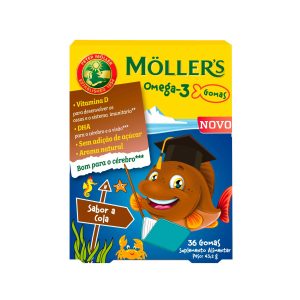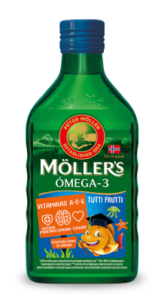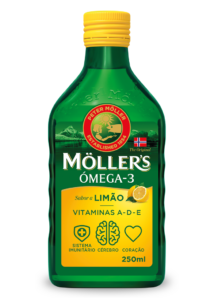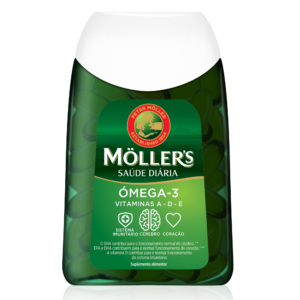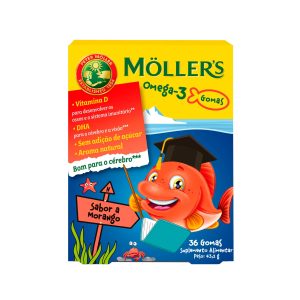Omega-3 and vitamin D are both important nutrients we depend on for our bodies to function optimally. But how do these vital nutrients function in the body?
Home » Omega-3 and vitamin D – two vital nutrients
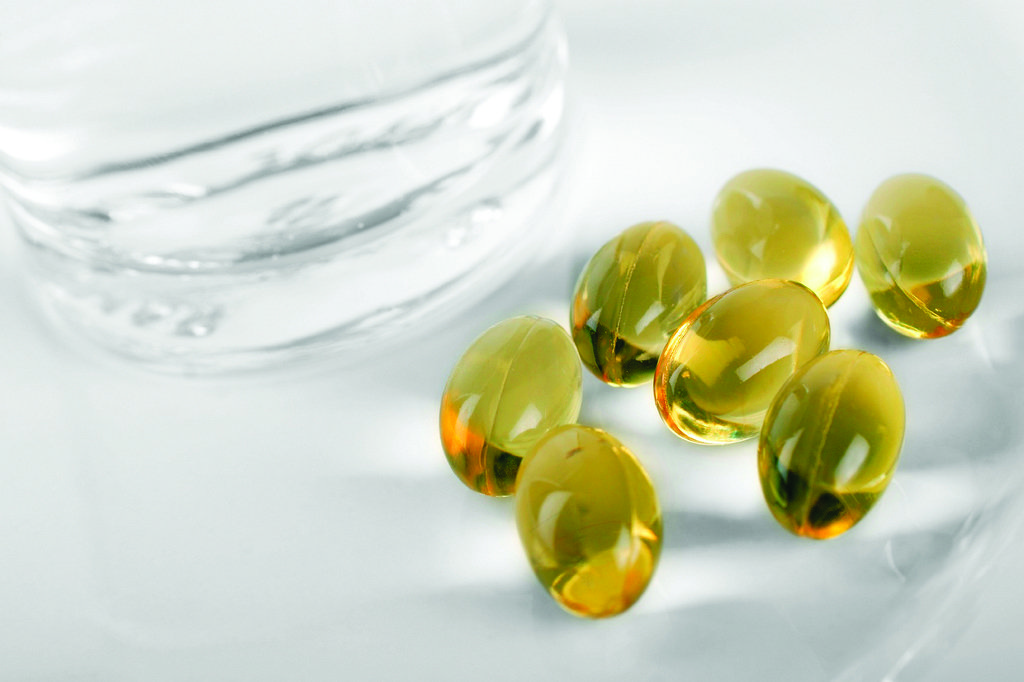
Read more articles about omega-3 here
Omega-3 and vitamin D – what’s the difference?
Although some foods and supplements, such as fish and Möller’s cod liver oil (CLO), contain both omega-3 and vitamin D, they are also found separately in different animal and plant foods.
Omega-3 for your heart, brain and eyes
Studies show that the omega-3 fatty acids EPA and DHA are included in vital processes in the body, such as building blocks in the cardiovascular system, which means they have a positive effect on the human heart. Additionally, the DHA fatty acid is unique in being the most important omega-3 fatty acid for the brain and eyesight. Studies show that there is a connection between a mother’s intake of DHA during pregnancy and the normal development of the brain of her foetus. Studies also show that DHA plays a role in maintaining a functional brain throughout life.
Vitamin D
Vitamin D can also be found in foods such as oily fish and fish roe and in supplements such as Möller’s CLO. The most common forms of vitamin D are D2 and D3. Vitamin D3 is the preferred form since it is easier for the body to absorb, break down and use. While vitamin D2 can be found in foods such as mushroom, D3 can be found in animal food sources.
Vitamin D contributes to the development of a strong bone structure in children, and in maintaining a healthy immune system and normal bone structure throughout life.
Read more articles about vitamins and minerals here
Omega-3 and vitamin D – How much do you need?
The NHS has made clear recommendations regarding the daily intake of vitamin D. Babies up to the age of 1 year need 8.5 to 10 micrograms of vitamin D per day.
Children from the age of 1 year and adults need 10 micrograms of vitamin D per day. This includes pregnant and breastfeeding women, and people at risk of vitamin D deficiency.
From about late March/early April to the end of September, the majority of people should be able to get all the vitamin D they need from sunlight on their skin. However, as stated on the NHS website, “During the autumn and winter, you need to get vitamin D from your diet. But since it’s difficult to get enough vitamin D from food alone, everyone (including pregnant and breastfeeding women) should consider taking a daily supplement containing 10 micrograms of vitamin D during the autumn and winter.”
The NHS also recommends eating at least two meals of fatty fish per week. This corresponds to 300–450 grams of pure fish. Of this, 200 grams should be from oily fish such as salmon, trout, mackerel and herring, containing more of the omega-3 fatty acids. Salmon contains 2.4 grams of omega-3 fatty acids EPA and DHA per 100 grams. In order to benefit from the effects of EPA and DHA, you should be getting 250 mg of these fatty acids daily.
What is good health?
Do you have a good lifestyle?
Lifestyle simply means the way in which you live. Health and lifestyle go hand in hand. You might feel you have a good lifestyle if you are physically active, eat healthily and generally experience a sense of wellbeing. Conversely, if you want good health you should also have a good lifestyle.
Physical activity is the major contributor to a good lifestyle, but diet, drugs, stress, sleep and social conditions are also play an important role. Being able to use the body properly to avoid injury also affects lifestyle. Physical activity can also prevent depression and help you to recover more quickly from mental illness, both of which obviously affect your lifestyle.
Diet can be a difficult topic for many. Perhaps you eat too much or too little or maybe you find it hard to know what foods to combine to have a balanced diet. It’s also important to eat food that contains important vitamins, minerals and dietary fibre, omega-3 and antioxidants. On top of all this, you also need to get enough energy, protein and the correct fatty acids. The requirement for these nutrients changes throughout your life. When you are older you also have different requirements than children and younger adults. Women also have different requirements than men. Pregnant and breastfeeding mothers also have special requirements.
When you get older, you lose muscle mass and your body requires less energy and therefore less food. You may lead a less active life than you did before, which is why you require less food. However, your need for minerals, vitamins and other nutrients remains the same. Of course, there are plenty of healthy and active older people, but when you reach 70 to 80 years of age, it’s easier to become ill, especially during flu season.
Some steps you can take to improve your lifestyle and health are to:
- eat a healthy and varied diet
- stay active
- watch your weight
- avoid too much alcohol and don’t smoke
- get enough sleep
- think positive
- practise good hygiene
What is good quality of life?
The World Health Organisation (WHO) defines quality of life as a state where the individual can realise their potential, cope with normal stressful situations, work in a rewarding and positive way, and be able to contribute to others and society.
Quality of life is a wide and somewhat diffuse concept that includes joy in, and a desire for, life. These are values that are rather felt than measured, which in turn are based on personal environment and choices. Quality of life doesn’t necessarily depend on being healthy or sick. It’s the moments between worries, sorrows, problems and ailments that matter. For example, if you have a chronic illness, a feeling of mastery can be important when talking about quality of life.
To sum up, quality of life is a combination of health, lifestyle, networks and social support. It’s about experiencing joy, meaning in life, satisfaction, security and a sense of belonging, as well as being able to use your strengths. It’s also about feeling interest in life, coping with everyday situations and a being committed to something or someone. If you have good quality of life, you will be able to cope better with the inevitable stressful situations in life.
Learn more
Programa de exercícios para idosos
Healthy Aging Healthy Bones
Dieta saudável durante a gravidez
Brain Healthy Aging
Boa saúde, estilo de vida e qualidade de vida – O que tudo isso significa?
Cod Liver Oil Healthy Aging
